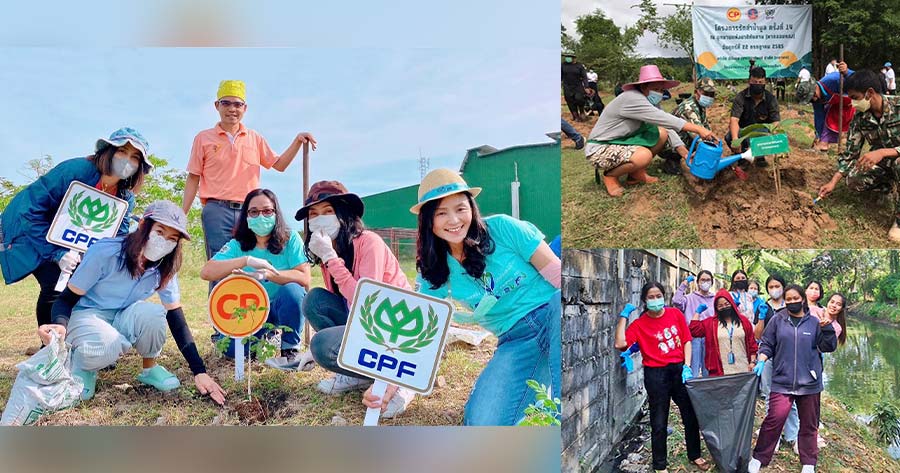Charoen Pokphand Foods Public Company Limited (CP Foods) is increasing green spaces in its workplaces across Thailand through its ongoing “Rak Nives” at workplace project, highlighting its commitment to mitigating the impact of climate change and increasing biodiversity. Recently, the planting of 17,000 trees across 57 farms and plants earned CP Foods the Low Emission Support Scheme (LESS) certification from the Thailand Greenhouse Gas Management Organization (TGO), absorbing over 4,900 tons of carbon dioxide.
As part of the Rak Nives project at the workplace, CP Foods encourages employee participation in environmental conservation efforts and offers training courses for employees on carbon sequestration measurement and evaluation to promote sustainability and increase green spaces. This initiative is part of CP Foods’ vital policy to increase green spaces and promote sustainability.

Mrs. Kobboon Srichai, Head of Corporate Affairs and Investor Relations at CP Foods, stated, “In 2022, CPF received the LESS certificate from the TGO for the Rak Nives project in the forestry and agriculture category. This certificate demonstrates that the green areas at CP Foods’ workplaces can absorb more than 4,900 tons of carbon dioxide.”
CP Foods is committed to restoring watershed and mangrove forests through its Rak-Nives Pasak Watershed, Khao Phraya Doen Thong Project in Lopburi province, which has conserved and restored 6,971 rai of forests since 2016. The Grow-Share-Protect Mangrove Forestation project covers 2,784 rai of mangrove forests in Rayong, Samut Sakhon, and Trat provinces. The company aims to preserve and increase green areas to 20,000 rai by 2030.

CP Foods encourages its employees to take action and share successful initiatives with their families, communities, and external agencies to expand green spaces in workplaces. Through the strong synergy of all executives and employees, CP Foods aims to help reduce greenhouse gas emissions both directly and indirectly to mitigate the effects of climate change and protect biodiversity.




